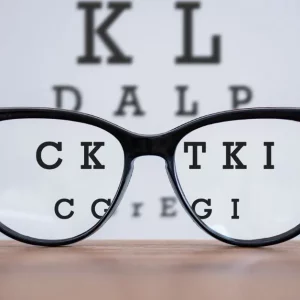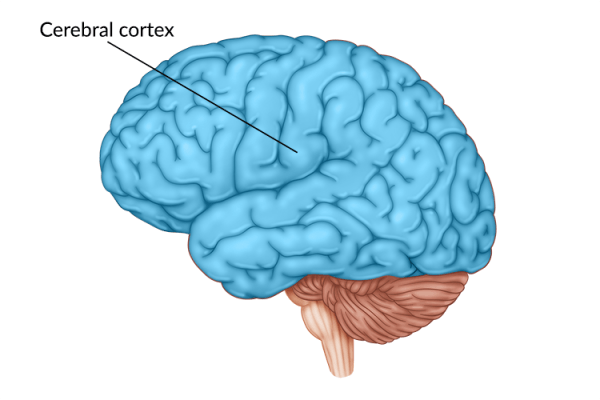Each year, traumatic brain injuries affect between 64 and 74 million individuals throughout the world. Although some survivors are able to fully recover soon after their injury, others experience long-lasting effects. Because recovery is different after each TBI, many survivors are left wondering, how long after head injury can symptoms occur?
This article will cover everything you need to know about the timing of post-TBI symptoms.
What Symptoms Can Occur After Head Injury?
A number of secondary effects can occur after traumatic brain injury. These effects depending primarily on the severity (mild, moderate, or severe TBI) and location of damage to the brain.
Two of the most common areas of the brain to be affected by TBI are the frontal and temporal lobes because of their location on the outermost areas of the brain.
The frontal lobe is primarily responsible for higher level cognitive functions, such as attention, judgement, emotional regulation, and problem solving. After frontal lobe damage, survivors may experience symptoms related to these functions.
The primary motor cortex and Broca’s area are also housed within the frontal lobe, making this area of the brain essential for voluntary movements and expressive speech, respectively. When these structures are affected by head injury, it can cause symptoms such as difficulty with movement and language.
The temporal lobe is important for processing sensory information. It also includes the memory center (hippocampus) and language comprehension center (Wernicke’s area) of the brain. When a head injury affects these areas of the brain, symptoms can include difficulty with recognizing objects or faces, as well as problems with memory and understanding language.
Because each area of the brain controls different functions, every head injury results in unique symptoms and secondary effects.
How Long After Head Injury Can Symptoms Occur?
Although many symptoms related to TBI are immediately evident, others may not manifest until weeks, months or years later. Research suggests that physical symptoms of TBI, such as headaches and fatigue, are most evident initially following TBI, while cognitive symptoms become predominate later on. Emotional symptoms tend to be consistently present immediately after TBI and throughout recovery.
Each TBI is different, and as such, each survivor’s recovery journey is unique. While some may pursue and achieve a full recovery early on, others may experience more ups and downs on the road to recovery.
Delayed-Onset Symptoms After Head Injury in Adults
Adults may experience a variety of late-onset symptoms following head injury. One study reported that of mild-TBI survivors who reported no symptoms two weeks after injury, 57% reported new symptoms within one year.
These symptoms may be physical, emotional, or cognitive. For example, dystonia (abnormal muscle tone resulting in repetitive twisting motions) may not become apparent until months or years following injury.
Emotional symptoms or psychiatric disorders, such as anxiety and depression, have also been known to develop in the weeks or months following injury. One study reported that following TBI, around half of all survivors develop a new psychiatric disorder.
Especially in the case of chronic traumatic encephalopathy, a condition that occurs following multiple head injuries, memory loss and changes in higher-level cognitive functions may occur months to years after injury.
In addition to symptoms directly related to TBI, further comorbidities may be commonly experienced in the months and years following TBI. These comorbidities can include (in order of prevalence):
- Back pain
- Depression
- Hypertension (high blood pressure)
- Anxiety
- Fractures
- Hyperlipidemia (high blood cholesterol)
- Sleep disorders
- Panic attacks
- Osteoarthritis
- Diabetes
Although it is possible to experience a full recovery shortly after TBI, it is important to monitor yourself for new or changing symptoms.
Delayed-Onset Symptoms After Head Injury in Children
Children who have sustained a traumatic brain injury can also experience delayed onset and/or long-term effects. This is mainly because their brains and bodies are still developing. After sustaining a TBI during childhood, individuals are more likely to experience effects such as:
- Learning disorders
- Attention-deficit/hyperactivity disorder
- Speech/language problems
- Developmental delays
- Bone, joint or muscle problems
- Anxiety problems
Although these symptoms are not always directly related to TBI, childhood survivors may be more susceptible to the conditions listed above.
What to Do If You Notice New Symptoms After TBI
Fifteen to thirty percent of individuals who have sustained even a mild TBI continue to experience symptoms a year or more after their injury. For those with more severe injuries, this percentage is even higher.
Noting any new or worsening symptom and discussing them with your doctor or therapist is the first step to preventing their progression. Even if it is months or years following your injury, it is important to bring up any changes you notice with your doctor or therapist so they can be addressed.
If symptoms change drastically overnight, it may even be necessary to seek emergency care.
One great way to keep track of new or worsening symptoms, as well as successes, is keeping a recovery journal. This can allow you to look back and see where you’re progressing, while also allowing you to monitor any significant changes.
Furthermore, consider discussing your recovery journey with a close friend or family member. They may be able to see changes, whether good or bad, in your symptoms that you may not notice yourself. Close-knit support groups can also be helpful for this purpose.
Ways to Overcome Long-Term Symptoms of Head Injury
Although symptoms of TBI may last for years, there are many ways to address these symptoms to make them more manageable. With proper management, recovery may also be possible.
Following a TBI, the brain is able to use a process called neuroplasticity to rewire itself to recover affected functions. Neuroplasticity is activated through repetitive exercises and activities. Pursuing therapy can be an excellent way to promote neuroplasticity and recovery.
- Physical therapy focuses on improving motor functions, such as range of motion, strength, coordination, balance, and walking skills.
- Occupational therapy addresses daily living skills through both restorative and compensatory methods.
- Speech therapy works on communication skills, as well as improving cognitive functions.
- Psychotherapy promotes improved thought patterns to address emotional and psychological effects of TBI.
Although it is most beneficial to pursue recovery at the onset of symptoms, individuals are able to activate neuroplasticity to promote recovery even months to years after their injury.
Understanding TBI Symptoms
Managing the effects of TBI is essential for recovery. According to the CDC, 5 years after injury, 30% of moderate to severe TBI survivors experience worsening symptoms. However, 22% of survivors had similar symptoms, while another 26% reported that their symptoms had improved.
Although it is possible for symptoms to worsen, with appropriate management techniques, there is plenty of hope that survivors of TBI can manage short and long-term symptoms to achieve a better quality of life.










